Family Dentist in Newport News, VA
 “Tooth worms” are the cause of tooth decay. That was the headline of a Sumerian text from around 5,000 B.C.E. Fortunately, the dental industry has evolved since then and we know “tooth worms” don’t exist. Here’s how dentistry has evolved into the comfortable, safe, and beneficial science of today.
“Tooth worms” are the cause of tooth decay. That was the headline of a Sumerian text from around 5,000 B.C.E. Fortunately, the dental industry has evolved since then and we know “tooth worms” don’t exist. Here’s how dentistry has evolved into the comfortable, safe, and beneficial science of today.
In the Beginning
Did you know that the ancient Egyptians had designated doctors for teeth? Evidence has been uncovered suggesting the Chinese used acupuncture to treat pain associated with tooth decay as early as 2700 B.C.E.
Additionally, in 500 B.C.E., Hippocrates and Aristotle wrote of treating teeth and oral diseases by using sterilization procedures and red-hot wires. They also spoke of using these red-hot wires to stabilize jaw fractures and bind loose teeth.
The Visionary Thoughts of the 1600s-1700s
According to the Academy of General Dentistry, the 1600s and 1700s were a gold mine of innovation in the dental world. In 1695, Charles Allen published the first ever English dental textbook entitled The Operator of Teeth. In the book, he advises using a homemade toothpaste from powdered coal, rose-water, and “dragon’s blood” to keep teeth clean and white. Allen also suggests using dog’s teeth for transplants and even references wisdom teeth in his book.
In the 18th century, Pierre Fauchard was well ahead of his time in the medical practice when his master work The Surgeon Dentist was published. For the first time, dentistry was described as a modern profession. Some notable highlights in the book include sugar being the cause of dental caries (cavities), braces being used to correct teeth position, and the concept of a dentist’s chair light.
The Progressive 1800s
The discoveries and inventions of the 1800s were significant. In 1816, Auguste Taveau developed the first form of dental fillings made out of silver coins and mercury. In 1840, Horace Wells demonstrated the use of nitrous oxide to sedate patients and Thomas Morton employed the use of ether anesthesia for surgery.
That same year, Horace Hayden and Chapin Harris boosted modern dentistry by opening the first dental school, inventing the modern doctorate of dental surgery, and starting the first dental society. By the end of the 1800’s, porcelain inlays, the first mechanized dental drill, and the toothpaste tube had all been invented.
Scientific Advancement of the 1900s
The scientific development of the 1900s gave birth to some amazing advancements in the dental industry. Electric drills became available due to the invention of electricity. In 1907, precision case fillings made by a “lost wax” casting machine was invented to fill cavities, and Novocain was introduced into US dental offices.
In 1955, Michael Buonocore described the method of tooth bonding to repair cracked enamel on teeth. Years later, the first fully-reclining dental chair is introduced to put patients and dentists at ease. By the 1990s, “invisible” braces were introduced, along with the first at-home tooth bleaching system.
What Will the Future of Dentistry Hold?
Today, dental professionals are investigating the links between oral health and overall health. The use of gene-mediated therapeutics to alter the genetic structure of teeth to increase resistance to tooth decay is receiving attention. Some researchers believe that there may be a way to grow a new tooth structure around weakened enamel. Only time will tell what the future of dentistry will bring, but our office is dedicated to seeking the most effective modern technologies as they arise.
Schedule your visit to our office and experience what modern dentistry can do for you.
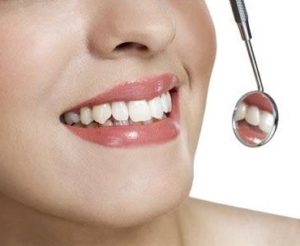 At Peninsula Dental Care, we know that gingivitis, which is the early stage of periodontal disease, can be difficult to recognize. Most patients do not recognize bleeding and swollen gums as precursors to gum disease. This month, September 2017, a national campaign is under way to raise awareness about gum health and periodontal disease. Peninsula Dental Care wants to help spread the word.
At Peninsula Dental Care, we know that gingivitis, which is the early stage of periodontal disease, can be difficult to recognize. Most patients do not recognize bleeding and swollen gums as precursors to gum disease. This month, September 2017, a national campaign is under way to raise awareness about gum health and periodontal disease. Peninsula Dental Care wants to help spread the word.


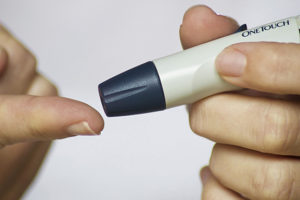 Did you know that 1 in 5 cases of total tooth loss is linked to diabetes? Diabetes affects your entire body including your mouth and teeth. Here are a few ways diabetes can impact your oral health:
Did you know that 1 in 5 cases of total tooth loss is linked to diabetes? Diabetes affects your entire body including your mouth and teeth. Here are a few ways diabetes can impact your oral health: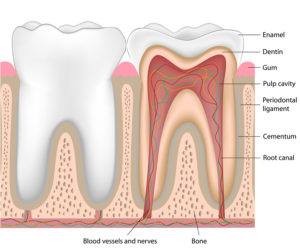 Dental development starts from approximately the 6th week in pregnancy through late adolescence. It involves the formation, eruption, and shedding of the 20 primary deciduous teeth, as well as the formation and eruption of the 32 permanent teeth. Throughout this development, the teeth are subject to both genetic and environmental influence.
Dental development starts from approximately the 6th week in pregnancy through late adolescence. It involves the formation, eruption, and shedding of the 20 primary deciduous teeth, as well as the formation and eruption of the 32 permanent teeth. Throughout this development, the teeth are subject to both genetic and environmental influence. Nearly everyone has at least one habit that they wish they could break. Did you know that some of them can affect your oral health? Here are a few common habits and tips for how to break them.
Nearly everyone has at least one habit that they wish they could break. Did you know that some of them can affect your oral health? Here are a few common habits and tips for how to break them.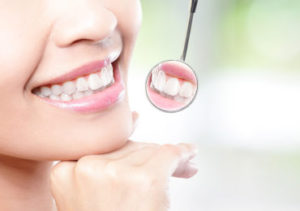 The single most cost-effective measure for reducing dental caries is fluoridation of public water supplies.
The single most cost-effective measure for reducing dental caries is fluoridation of public water supplies. Sugary, sticky, and sweet candies can damage your teeth by increasing your risk of decay. Though gum can be considered a type of candy, chewing sugarless gum approved by the ADA can actually help protect teeth and prevent tooth decay. Here’s what you need to know about gum and your teeth.
Sugary, sticky, and sweet candies can damage your teeth by increasing your risk of decay. Though gum can be considered a type of candy, chewing sugarless gum approved by the ADA can actually help protect teeth and prevent tooth decay. Here’s what you need to know about gum and your teeth. Diabetes is one of the major health concern in the world today. It is up to 10% of our US population has diabetes. As much as 9 million people are currently living with diabetes that they are not even aware of. There are 2 types of Diabetes Mellitus. In Type I diabetes, our body does not make enough insulin, therefore our blood sugar cannot get into the cells to be used. In Type II diabetes, our cells do not respond to insulin appropriately. The high blood sugar levels in both types, in long term, can cause problems with your eyes, nerves, kidneys, heart and blood vessels.
Diabetes is one of the major health concern in the world today. It is up to 10% of our US population has diabetes. As much as 9 million people are currently living with diabetes that they are not even aware of. There are 2 types of Diabetes Mellitus. In Type I diabetes, our body does not make enough insulin, therefore our blood sugar cannot get into the cells to be used. In Type II diabetes, our cells do not respond to insulin appropriately. The high blood sugar levels in both types, in long term, can cause problems with your eyes, nerves, kidneys, heart and blood vessels. “Tooth worms” are the cause of tooth decay. That was the headline of a Sumerian text from around 5,000 B.C.E. Fortunately, the dental industry has evolved since then and we know “tooth worms” don’t exist. Here’s how dentistry has evolved into the comfortable, safe, and beneficial science of today.
“Tooth worms” are the cause of tooth decay. That was the headline of a Sumerian text from around 5,000 B.C.E. Fortunately, the dental industry has evolved since then and we know “tooth worms” don’t exist. Here’s how dentistry has evolved into the comfortable, safe, and beneficial science of today.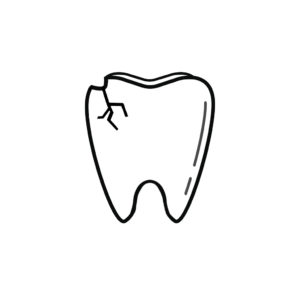 It usually starts pretty innocently. You’re biting into your favorite hard candy and suddenly you realize that there’s one little hard piece in your mouth you can’t seem to dissolve. You check it out and fear overcomes you when you see it’s a little chipped piece of a tooth.
It usually starts pretty innocently. You’re biting into your favorite hard candy and suddenly you realize that there’s one little hard piece in your mouth you can’t seem to dissolve. You check it out and fear overcomes you when you see it’s a little chipped piece of a tooth. For seniors, it is imperative that gum health is a top priority. As you age, your risk of developing periodontal (gum) disease increases. Periodontal disease is both preventable, and in many cases, reversible. When left untreated, it can lead to more serious complications such as bloody or swollen gums, and even tooth loss. Even more alarming are the numerous studies connecting periodontal disease to other serious illnesses. Here’s what you need to know about gum health as you age.
For seniors, it is imperative that gum health is a top priority. As you age, your risk of developing periodontal (gum) disease increases. Periodontal disease is both preventable, and in many cases, reversible. When left untreated, it can lead to more serious complications such as bloody or swollen gums, and even tooth loss. Even more alarming are the numerous studies connecting periodontal disease to other serious illnesses. Here’s what you need to know about gum health as you age.